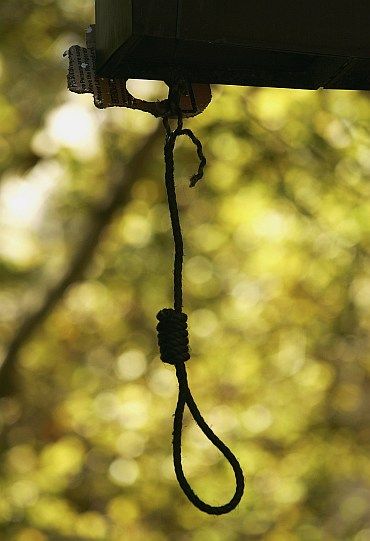 India has opposed a UN resolution calling for a moratorium on the death penalty, saying it goes against Indian statutory law and the sovereign right of every country to determine their own legal system.
India has opposed a UN resolution calling for a moratorium on the death penalty, saying it goes against Indian statutory law and the sovereign right of every country to determine their own legal system.
But it supported an amendment reaffirming sovereign right to develop domestic legal systems.
India's representative Mayank Joshi said every State had a sovereign right to determine its own legal system, which was why he had voted for the amendment. But the counsellor at India's UN Mission said he had voted against the resolution "because it contravened statutory law in India."
The resolution was, however, adopted with 115 votes in favour to 38 against, with 31 abstentions following an "intense discussion," said a statement on the UN website.
The amendment was passed by 76 votes in favour, 72 against, 26 abstentions.
Explaining India's stance on the issues, Joshi said: "In India, the death penalty is exercised in the 'rarest of rare' cases, where the crime committed is so heinous as to shock the conscience of society."
He said Indian law provides for "all requisite procedural safeguards, including the right to a fair hearing by an independent court, the presumption of innocence, the minimum guarantees for the defence, and the right to review by a higher court".
He said the resolution "sought to promote a moratorium on executions with a view to abolishing the death penalty."
"My delegation therefore, has voted against the resolution as a whole as it goes against Indian statutory law," he said.
Death sentences in India must also be confirmed by a superior court and an accused has the right to appeal to a high court or the Supreme Court.
The Supreme Court of India has adopted guidelines on clemency and the treatment of death row prisoners and that "poverty, socio-economic, psychic compulsions, undeserved adversities in life" constituted new mitigating factors to be considered by courts in commuting a death sentence to life imprisonment, he added.
The President of India in all cases, and the Governors of States under their respective jurisdictions, have the power to grant pardons, reprieves, respites or remissions of punishment or to suspend, remit or commute the sentence of any person convicted of any offence.
In the past 12 years, only three executions -- all of them of terrorists -- have been carried out in India.











 © 2025
© 2025